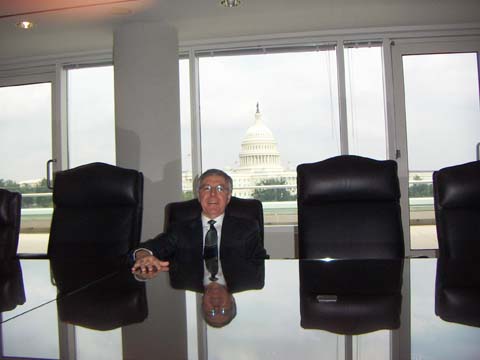Choices: 4 tips to reduce your risk and improve your outcomes

How can we know when our choices are a justified risk versus just rolling the dice? We should never just choose to do something because we fear we might regret it later. At the same time, we have to find a way to overcome our natural fears about making risky choices.
Anyone who advances themselves whether moving up the career ladder as an employee or in their own business has to take risk. Anyone who succeeds in raising a family or stays married for a long time has to take risk. Successful people generally make the right choices over 80% of the time. So, yes, you are going to strike out sometimes in order to achieve anything meaningful. But, you need to learn how to take risk that turn out in your favor most of the time. How you make choices when faced with an uncertain outcome is the primary focus of my book research.
Let me offer four tips that can reduce the risk of the choices you make and improve your batting average:
1. Gather the maximum amount of information possible before you make any choices.
That includes ALL the facts that are available (not just the facts you liked the best), observations, readings on the subject, opinions of experts and respected colleagues and more. You reduce the risk substantially by knowing everything you can about the various choices you have.
From my experience, many bad choices could have been avoided had someone actually done their homework instead of rushing in on a whim. You need to be about 10 times more thorough in collecting information than you think will be necessary. Maximum thoroughness is the operative phrase for great choices.
2 All the information you gather gets fed into your subconscious mind where your choices can best be evaluated
That’s where 90% of your brain power resides. That’s where the greatest logical and analytical thinking occurs. You can’t figure it out your choices simply using your conscious thoughts which are quite limited. While you should do whatever you can with conscious thought, you need to allow this information to percolate in your subconscious for a while.
When you do this, you will get messages from inside yourself about which choices make more sense. Reflect on these messages carefully. Make sure they are coming from the right place and not from emotional feelings or desires. You may want something really bad. Be carefully that this desire is not influencing the conclusions your subconscious mind is delivering.
3. Pay very close attention to comparisons such as risk versus reward, advantages versus disadvantages, ease versus difficulty, etc.
Unless you have a list of the problems, weaknesses, cost and concerns of making a choice, you haven’t done your homework. Period. Successful choices are not just about thinking positively.
4. Really look yourself in the mirror and be honest about whether you have the skill, talent and knowledge to successfully handle these choices.
Maybe it will be a good choice for you after you have learned some new skills that are critical for the path you want to pursue. Maybe once you get those skills you will discover that the original choice isn’t so good and a much better one presents itself to you.
What I’ve learned is that going through these four steps allows the best choices to rise to the top and the rest to sink of their own weight.
![Reblog this post [with Zemanta]](https://img.zemanta.com/reblog_e.png?x-id=d5ce6a6d-cfc5-4f18-9894-ce8bb5b2bbf6)




10 thoughts on “Choices”
Hey Don,
I’m following you on twitter & saw your tweet about this post, love the site, love the concept, love, love, love it 🙂
Life is indeed a fork in the road, at every moment, I know that when I listen to my inner voice, its always the right choice.
In the 1st paragraph of this blog post you say that successful people make the right decision 80% of the time. I don’t know that I agree with that at all. It seems to me that successful people just make more decisions- and they learn from each of them, valuable lessons which means that they don’t repeat the same mistakes again.
Successful people make decisions with consciousness/awareness which enables them to improve their decision making process every time they make a decision. Look at Edison for example- he made over a thousand decisions how to make a light bulb, only one of them successfully produced a light bulb.
I see that what keeps people back is a fear of risk, successful people are more willing to take those risks, understanding that not every one of them will pay off.
Yes, always gather the maximum amount of information before making a decision, but sometimes there just isn’t enough “information” for you to “know” what the right decision is. Sometimes we just need to decide which fork in the road to take, despite not knowing exactly where either road will take us. One road may start going through a swamp, but end up leading us to paradise. Another road may seem idyllic from our present perspective but as we journey along the road, and we gather new information we see it’s just a dessert after all.
The key is to MAKE a choice, each time we make a choice we are given more information, and that information puts us in a better place the next time we need to make a decision- it reduces the risk of any future choices.
Hi Claire,
Glad you like my book concept. Appreciate your support and taking the time to share.
Every time someone like yourself makes a comment on this website, it adds to the discussion about how we make choices and helps me to refine my ideas for the book. Literally, we are shaping and guiding this together. This just feels right to me at some very deep level.
Your comment raises a point that has yet to be explored. What is the definition of a decision? Is it every instance that we take an action or carry out a task? Or it a decision about a course of action that might involve many tries or experiments before seeing the final outcome?
For example, in the case of Thomas Edison’s thousands of trials to finally create a light bulb that worked, I might see that as only two decisions. First, the decision to pursue the invention of something which has never existed before – the electric light bulb. Up front, he had to know this wasn’t going to be easy and would take a lot of time he could have spent doing something else.
Second, the decision to continue trials and experiments no matter how long it took until he discovered what would work. I see experimentation to achieve a singular invention as one decision. That is not to say there were many choices that had to made along the way. But at some deep level, Edison knew he could find the solution so it was just a matter of trying this and trying that until his various experiments eliminated certain options and pointed him down the path of the most likely possibilities.
Of course, what he learned from each failure was critical in leading him down the right fork in the road. Someone else might not have drawn the same conclusions from those failures and never discovered the path to a workable solution. So yes, he obviously faced many forks in the road during his experiments and those were each choices. But the big choice was never to give up no matter how long it took.
Which leads me back to the 80% statement. I will stand by that in the context of our daily personal and work lives. I would not apply it to scientific research or something that involves potentially unlimited investigation (such as a very difficult crime case with little or no physical evidence).
In my late twenties, I started a catering and bakery business. By the time I sold it four years later, I never made a real profit above a very minimal salary. I had to spend so much money to correct all the poor decisions I made during my first two years that by the time I had the business on a solid path, I had burned out on it. I was never afraid to take risk with my own money and time even though I didn’t know a lot about that particular business. I knew a lot about cooking and food service but was not prepared for what was unique about catering.
If a corporate executive or business owner made the wrong choice 50% of the time, their company would be bankrupt. In a sense we are saying the same thing. Generally, successful executives have decades of experience where they have, over time, made many decisions from which they have learned things. They did that in positions where even a bad decision did not jeopardize the organization.
They moved up the ladder primarily because their decisions tended to be right more often than others. As they continued to rise in their careers, their decision accuracy continued to increase. When one looks at the high rate of failure among newly started businesses, most of the failure rate is with individuals who had no experience in that business before starting it. So they had not gone through a process of learning from their choices about how to do it right most of the time.
You can apply the same thinking to a family unit or a marriage. Imagine what a marriage would be like if your spouse turns out to be wrong half the time. Or, as parents, you make the wrong decisions about your kids half the time. How would your kids turn out? How would they feel about you? We aren’t going to be right all the time. And in the early years, we are going to make more mistakes. But successful marriages and successfully raising kids involves getting a lot of things right a lot of the time.
Yes, we have to take risk to move forward in life. We should learn from every choice we make, every risk we take. Unfortunately, as I’m sure you have seen for yourself, some people don’t learn from their mistakes like others do. Some continue to repeat the same poor choice over and over. Some pick up some clues and improve but totally ignore other clues.
The reality is that not all people are equally as effective in making choices and learning from those choices. I believe some of the fear we have about taking risk comes from our not learning the right lessons from our previous choices. We may be aware we have made the same mistake more than once and so become more cautious about making any choice instead of looking deeper into the lessons that can be learned from the choices we made.
I hope that my book’s research will help find ways for more people to make better choices by learning more from their past choices and better understand what they need to do to improve the odds with their next choice.
We can’t eliminate risk. I’m only talking about things that can reduce the risk. Every decision involves going beyond the facts in some way. Your comments lead me to want to learn more about the nature of what holds people back from taking risk. Once I have collected thousands of stories many of these answers should rise to the surface.
Don
interesting, we’re saying the same things, in essence, just from a different perspective.
I see what keeps people back most from making a decision/choice (and yes I see all decisions-small & large as being relevant, each being a fork in the road) is the fear of making a WRONG decision. In my opinion there is no WRONG decision, each one brings us to greater understanding of who we are, what we want & how we can better get that.
I would be afraid that saying that successful people make the right decisions 80% of the time makes it seem that they’re better somehow & that other people are different. They only reach that level of successful decision making by being prepared to risk making decisions & gathering more information, and being able to make better decisions each time.
A high percentage of successful entrepreneurs only become successful after failures- after making the “wrong” choices, taking the wrong fork in the road. Because that’s the learning journey that gave them the skills which resulted in success.
I can totally relate to your experience of starting a bakery, as a business coach that’s one of the most valuable things I have to offer my clients- experience of business that they don’t have, so that in the first years of starting up a business they don’t run into the same mistakes that most people do. Having a business coach is a valuable investment for any start up – it means that they’re far more likely to hit success before they hit burn out! Your story is very familiar, and very common (most businesses fail within the first 3 years).
Reading your initial post, and writing my response inspired me to write a little article myself on decision making. It will form part of the book that I’m currently writing- 365 ways to change your life. It’s great to meet someone doing something so similar 🙂
the word ‘instinct’ is an interesting word i think around choices. the exploration of following one’s gut vs. the mind. the heart vs. the mind.
in yogic studies they talk about prana – the inner life force and chitta (can be spelled in different ways) which is sometimes referred to as consciousness, but the goal is to work with the two. ie. the chit/chitta the logic has a function, maybe similar to conscious mind ideas and then the unconscious/inner elements has its own function.
a friend talks about the amount of information our conscious mind takes in in contrast to unconscious. i believe it is something like 16 bits of information a second in contrast to thousands a second of the unconscious. so then the instincts of our unconscious may not be always ideal, but may have elements of value that are beyond the conscious mind’s information to work from. ie. the value of using both the conscious mind and the instinctual level.
jung talks about the daemon in his work. the nagging inner voice that often doesn’t make sense that led him forward in his process of exploration that ultimately influenced and continues to influence so many people.
joseph campbell talks about the hero’s journey and the ‘call’ that people have.
i have been thinking about ideas such as revenge lately as a motivation. some may think of it as a bad/evil thing, but what about people who have someone’s husband die of cancer like donna karan and then give their energies to helping find options for such things. is that a form of the revenge energy? an occurrence and a healthy way of directing energies?
thinking about people who are artists who go through pains and challenges and then something opens in them where their soul somehow is just driven to do art. there are studies of things like writers with post traumatic stress disorder. something happens and they just can’t function like others and that leads them somewhere.
while there are choices, sometimes of course there are circumstances that lead somewhere. someone ultimately facing a mental illness for example. someone surrendering to their limitations emotionally. choice involved perhaps to some degree, but often it may come to a point where it seems like the only choice avaialable is to finally go through something that they were fearing to go through.
sometimes too like with people in aa, there is the idea of ‘sick and tired of being sick and tired’. breaking points where people just can’t take it anymore. where all their logic goes out the window in a way. like iyanla vanzant’s book ‘one day my soul just opened up’. a point of ‘breaking’ or ‘cracking’.
buddhists talk about how their boddhisatvas (buddhist saints/social servants) must first be crushed. ie. their ego is often destroyed in different ways/broken down, which makes them open and available in a different way to supporting other people.
regardless, in choices, motivation seems like a key thing. what motivates a choice? fear? love? greed? lust? instinct w/o understanding exactly what/why?
a couple other comments…
a friend says at times ‘the head should serve the heart, not the other way around’ which may be interesting in your head or heart inquiry. also it fits with what i said about the chit/prana idea from the yogis. the idea of them relating almost like dna has been an image i have thought about. two strands with interconnections at play. ie. two somewhat parallel and somewhat intertwined, but separate strands spiraling.
additionally, the one story you mentioned by derian king sounds like the stories in the magazine ‘guideposts’ which is a Christian magazine, but i like the idea of non denominational options and/or multi religious options/explorations about inner guidance.
additionally around the whole heart inquiry is the idea of ’emotional guidance system’ as abraham hicks talk about in their ‘law of attraction’ teachings which of course the film ‘the secret’ was based on as i understand it, although they were cut from the later printings due to differences of producers and the abraham folks and what was feeling right for each.
the abraham-hicks people talk a lot about listening to the layers of feeling around making choices. abraham-hicks.com i think should be their site if not familiar. may be of use as well to seek out some of them on yahoo groups for stories. there are probably a number of yahoo groups you could seek stories on.
I like your book idea, and agree with what you have said. “All except in this paragraph:
Don began to wonder if these were a coincidence or came from something far more powerful. Then he asked the question which lead to the research he is now conducting for his book “Life Is A Fork In The Road:” how many other people have experienced the same phenomena and what happened when they followed this inner voice or feeling?”
You might want to read The Spontaneous Fulfillment of Desire, by Deepak Chopra and also Small Miracles, Extraordinary Coincidences: by Halberstamd & Leventhal. It might change your view of coincidences. Coincidences are very powerful, and being aware of them when they occur, you will see/know the message for you within them.
Hi Ruth,
Thanks so much for sharing. You and I don’t disagree at all. There are no coincidences in life. Everything happens for a reason. I’ve been saying that long before any of the book authors you cited where every published. It goes back to when I was a teenager!!!
I try to write in a way that engages readers by using questions that allow them to explore possibilities. I believe people need to discover their own truths instead of just following what someone else says. I personally believe there are no coincidences. There may be some visitors to this website who are not sure about that. I want them to discover this truth for themselves through my stories and research as opposed to my posturing like a guru.
There are no gurus. As I often say, “you are the expert on you.” My book project is very different from most of the popular self-help and inspirational books out there that are primarily the authors personal point of view. I am conducting in-depth research where that research will tell it’s own story. Not my story. Not another author’s story. But the collective truth of a lot of people. We are writing this book together!
Do you have a story you’d like to share for my book research about a choice you made where you followed your heart? It could help a lot of people. The stories I have posted on this website so far have already helped people. That’s what this book is all about.
I had to read your post three times to get the full impact of it. I appreciate reading what you have to say. It’s too bad that more people do not comprehend the benefits of coaching. Keep up the good work.
Hi Gordon. Wow, you read it three times. That’s persistence. Thanks for digging below the surface. This blog comes out of my 25 years of experience as a management consultant. If you’re interested, please check out my new blogging based website for my consulting firm where there are more articles.
http://www.firstconcepts.com
A few years ago I’d have to pay someone for this information.